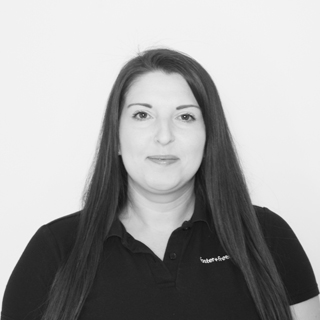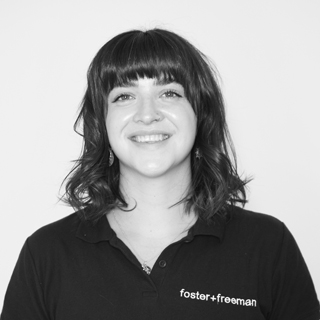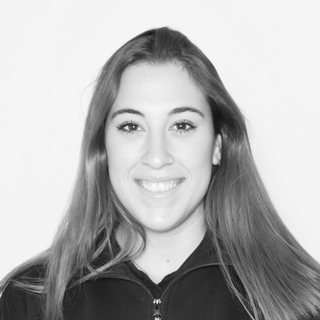foster+freeman BLOG
Celebrating Women in Forensic Science
As we commemorate International Women’s Day, a global celebration of the achievements and contributions of women throughout history, it is fitting to shine a spotlight on the remarkable women who have left an indelible mark in the field of forensic science. The realm of forensics has witnessed the emergence of numerous talented and trailblazing women who have played pivotal roles in shaping the landscape of crime-solving methodologies.
At foster+freeman, we take pride in acknowledging the invaluable contributions of these women, whose dedication, expertise, and relentless pursuit of justice have significantly advanced the field of forensic science. From groundbreaking research to hands-on investigative work, women in forensic science have left an enduring legacy that continues to impact the way we understand and unravel complex criminal cases.
In this blog, we will explore the stories of some of the most notable women in forensic science, delving into their achievements, innovations, and the challenges they’ve overcome. Join us in celebrating the achievements of these incredible women and recognizing the pivotal role they play in pushing the boundaries of forensic science on this International Women’s Day.
Frances Glessner Lee (1878–1962):
Delving into the annals of forensic science history, the name Frances Glessner Lee stands out as a true trailblazer, and rightfully so. Often hailed as the “mother of forensic science,” Lee’s contributions echo through time, leaving an indelible mark on a field that was in its infancy during her groundbreaking era.
Breaking societal norms, Lee made history by becoming the first female police captain in the U.S. Her journey was not just a personal triumph but a pivotal moment for women in law enforcement, setting the stage for others to follow in her footsteps.
However, Lee’s impact reaches far beyond her role as a police captain. She played a pivotal role in the establishment of the first-of-its-kind Department of Legal Medicine at Harvard University. In an era when forensic science was just beginning to find its footing, Lee’s foresight and determination laid the foundation for the academic and practical aspects of the field.
Lee’s most renowned contribution, the “nutshell studies of unexplained death,” showcases her ingenious approach to forensic training. Faced with a glaring lack of training for investigators at the time, Lee recognized the urgent need for tools that would instil a scientific and methodical approach to crime scene examination. Enter the Nutshells, miniature dioramas meticulously crafted by Lee beginning in the 1940s.
These dioramas, essentially the “virtual reality” of their time, were constructed with a level of detail that challenged trainees’ powers of observation and deduction. From the minutiae of bullet hole angles to the precise placement of window latches, the Nutshells replicated crime scenes with an astonishing level of accuracy. Each element, down to the patterns of blood splatters and the discolouration of handmade miniature corpses, served as a training ground for forensic examiners to hone their skills.
What makes Lee’s Nutshells truly timeless is their continued relevance. Even today, these miniature crime scenes are employed in training seminars at the Office of the Chief Medical Examiner in Baltimore. Lee’s legacy lives on through the enduring effectiveness of her innovative teaching tools, ensuring that generations of forensic scientists continue to learn and refine their craft.
Frances Glessner Lee’s story is one of resilience, vision, and a pioneering spirit that continues to inspire and shape the very fabric of forensic science. Her dedication to advancing the field, coupled with her unique approach to education, has left an enduring legacy that transcends time and resonates with all those who seek truth in the meticulous world of forensic investigation.

Angela Gallop
Dr. Angela Gallop has etched her name in history through pioneering contributions that have transformed the way we approach criminal investigations. A highly esteemed British forensic scientist, Dr. Gallop’s illustrious career is marked by a relentless commitment to advancing forensic casework and DNA analysis. Her expertise has been instrumental in unravelling the complexities of numerous high-profile criminal cases, demonstrating an unparalleled ability to discern crucial details from forensic evidence.
In 1986, Dr. Gallop took a monumental step in the field by founding Forensic Access, an institution that is a testament to her dedication to forensic science. She established this consultancy as a hub for a comprehensive range of forensic science services, including training programs, consultancy services, and meticulous casework analysis. Forensic Access’s impact extends far beyond a consultancy’s confines, acting as a catalyst for progress and innovation in the broader landscape of forensic science.
Dr. Angela Gallop’s influence extends beyond the confines of her casework and consultancy endeavours. She has generously shared her wealth of knowledge and experience by authoring insightful books on forensic science. Her contributions in this realm serve not only to educate future forensic scientists but also to inspire a new generation of professionals to push the boundaries of what is possible in forensic analysis.
Widely acclaimed for her significant contributions, Dr. Gallop’s legacy is imprinted not only in the scientific community but also resonates powerfully in the legal and law enforcement sectors. Her unwavering dedication to precision, accuracy, and justice has not only solved crimes but has also set an enduring standard for the ethical and meticulous practice of forensic science. As we reflect on the strides made in the field, Dr Angela Gallop stands as a beacon, guiding the way forward for forensic scientists committed to excellence in unravelling the mysteries surrounding criminal investigations.
Clea Koff
Clea Koff is a forensic anthropologist who gained recognition for her work in identifying victims of war crimes and mass disasters. She has been involved in various international investigations and has contributed significantly to the field of forensic anthropology. Clea’s fascination with bones led her to study Biological Anthropology at the University of Edinburgh. Little did she know, this would kickstart a career that would redefine the way we approach human stories hidden in skeletal remains. Clea’s real impact came in the aftermath of the Rwandan genocide. Working with the International Criminal Tribunal for Rwanda, she got her hands dirty – quite literally – exhuming and identifying victims from mass graves. Her work added pieces to the puzzle, contributing to the pursuit of justice for those affected by war crimes.
One of Clea’s defining moments she occurred in the aftermath of the Rwandan genocide in 1994. At the heart of the chaos and devastation, she joined the International Criminal Tribunal for Rwanda (ICTR). Her role was crucial in the painstaking process of exhuming and identifying victims from mass graves, where the remnants of unspeakable atrocities were buried. Clea’s forensic expertise played a vital role in piecing together the puzzle of what transpired during one of the darkest chapters in human history.
Koff’s impact extends beyond Rwanda. Her forensic anthropology work has taken her to conflict zones worldwide, including Bosnia, Croatia, and Kosovo. In these regions torn by war, her ability to identify human remains has provided closure for families and contributed valuable evidence to international efforts to prosecute war criminals. Forensic anthropology isn’t just about bones; it’s about bringing justice to those who have suffered. Clea’s work has been instrumental in providing the evidence needed to hold perpetrators accountable for war crimes. Her meticulous approach to human identification ensures that the stories of the victims are not only heard but also recognized in legal proceedings, offering a glimmer of justice in the aftermath of atrocities.
Clea’s impact goes beyond her direct involvement in forensic casework. She has become a passionate advocate for human rights, using her expertise to shed light on the importance of forensic science in addressing human rights abuses. By engaging in advocacy initiatives, she has amplified the significance of forensic anthropology in uncovering and acknowledging the truth behind acts of violence. Koff’s work exemplifies the delicate balance between science and humanity in forensic anthropology. Her ability to navigate the intricacies of skeletal remains not only contributes to the scientific understanding of past events but also brings a human touch to the often sterile field of forensic science. Through her work, she bridges the gap between bones and the stories they silently tell.
foster+freeman
When we talk about the impactful contributions of women in the field of forensics, it’s not just about historical figures or trailblazers; it’s about the incredible women working around the globe and right here at foster+freeman. Our team is a testament to the diversity of roles and expertise that women bring to the forefront in various areas of our business.
From the dynamic realm of production to the innovative domain of Research and Development (R+D), and the strategic fields of applications and sales, women at foster+freeman are making waves in every facet of the business. Their dedication and proficiency are the driving forces behind the success of our endeavours, both locally and on a global scale.
You might already recognize some of these talented women if you’ve ever tuned into our webinars or attended our training sessions, either online or in person. Their faces are a testament to the wealth of knowledge and expertise that enriches the foster+freeman family. So let’s meet some of our application specialists!
UK and EU Technical Training & Sales Support Team
Laura Dodd
Fingerprint/Crime-lite Lead & Senior Applications Specialist
A trained Forensic Biologist and former team leader in a laboratory, Laura has been with us for 4 years. She now specialises in Crime-lites and fingerprint technology. She loves to travel and has backpacked solo across (most of) Asia!
Calypso Harvey
Applications Specialist
When she’s not at home baking or re-watching Bridget Jones’s Diary, Calypso specialises in fingerprint technology and the Crime-lite range. She has now been with us for one year after completing her masters degree in Chemistry.
Leoni Mimnagh
Applications Specialist
Resident sushi fanatic and Marvel-obsessive Leoni joined us in March 2022 after completing her degree in Forensic Science. She now specialises in Questioned Document Examination.
Estefania Gomez Garcia
Applications Specialist
Estefania is a Forensic Investigation graduate who specialises in Questioned Document Examination. Outside of work you can find her perfecting her driving skills or undergoing a brutal CrossFit session.
Conclusion
And to the fantastic women at foster+freeman, each contributing in their unique and impactful ways, we salute you. Your dedication to the world of forensic science is nothing short of amazing, and your stories add vibrancy and innovation to this fascinating field.
As we reflect on the achievements, innovations, and challenges of these incredible women, let’s not only celebrate their contributions but also look forward to a future where more women continue to shape the narrative of forensic science. The trailblazers we’ve explored in this blog are a testament to the remarkable possibilities that arise when passion, dedication, and expertise converge in the pursuit of truth and justice.
Here’s to the women who have redefined forensic science, proving that the future is not just female but extraordinarily bright. May their stories inspire a new generation to embark on their forensic journeys, pushing the boundaries and unravelling the mysteries that lie ahead. Happy International Women’s Day!





